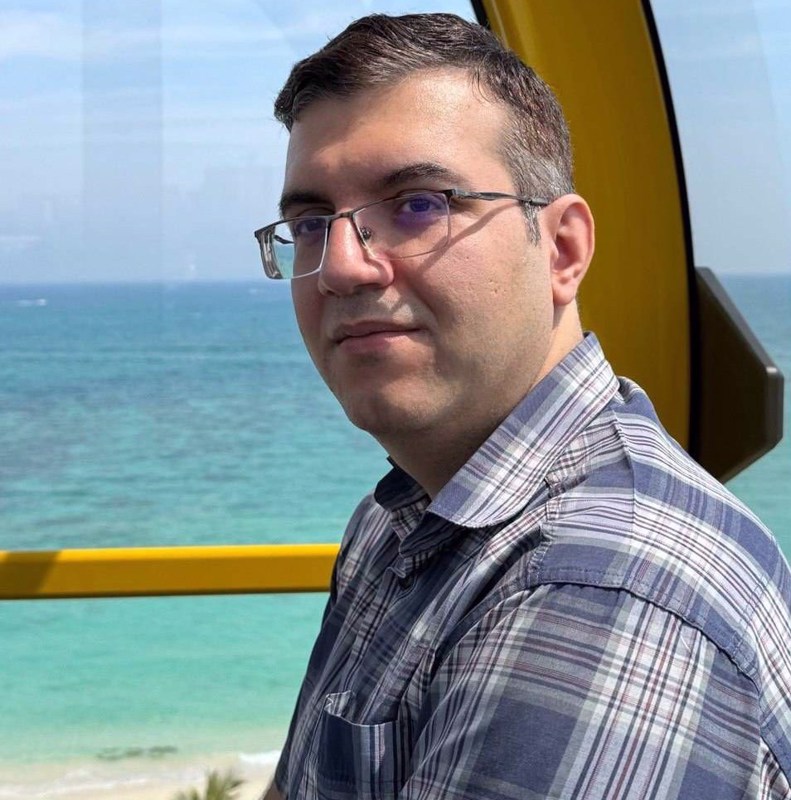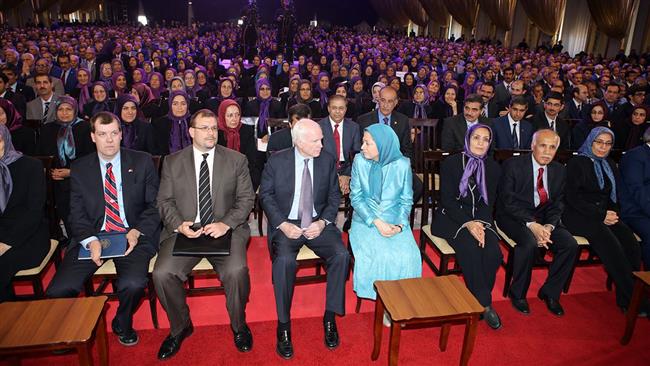Iran: US should pay for spreading terror in region
Iran has censured the United States’ role in spreading terror in the Middle East region, saying Washington should pay for its wrongdoings.
Speaking at a news briefing on Monday, Foreign Ministry Spokesman Bahram Qassemi said US officials have shown in recent decades that they have not learned from their previous experiences and have consistently contributed to the escalation of terrorism in the region through their wrongful policies and indecent behavior.
Qassemi said that Washington’s policy continued under the new administration. “This is a mistake, which the US government should pay for like its other mistakes,” the official asserted.
As a case in point, he cited Republican US Senator John McCain’s meeting with the head of the terrorist anti-Iran Mujahedin-e Khalq Organization (MKO), Maryam Rajavi, in the Albanian capital Tirana on Friday.
The MKO has carried out numerous terrorist attacks against Iranian civilians and government officials over the past three decades. Out of the nearly 17,000 Iranians killed in terrorist assaults since the victory of the 1979 Islamic Revolution, about 12,000 have fallen victim to MKO’s acts of terror.
The meeting, which also featured some other members of the notorious group, saw the senator praising Rajavi by saying, “You have stood up, fought, and sacrificed for freedom, for the right to live free, for the right to determine your future.”
“This contact serves the same purpose (of terror expansion). These types of contacts are nothing new,” Qassemi analyzed.
Read more:
‘UK must honor N-deal’
Qassemi also censured Britain for its role in blocking Iran’s procurement of yellowcake -- a type of uranium condensate powder.
“Britain has displayed unfaithfulness (to the nuclear deal) and petulance in this case. Negotiations [on the issue] continue, and we hope that the British government would take cognizance of its commitments under the JCPOA,” Qassemi said, in reference to the Joint Comprehensive Plan of Action, or Iran’s nuclear deal with six world powers.
Since the conclusion of the nuclear accord between Iran and the P5+1 countries -- the US, the UK, France, Russia, and China plus Germany -- in July 2015, the Islamic Republic has purchased 360 tonnes of yellowcake.
As a member of the Procurement Working Group of the Joint Commission monitoring the implementation of the nuclear agreement, the UK has prevented Iran from further purchases of 900 tonnes. Iran says it is up to the country, not any other party, to decide how much yellowcake it needs.
‘Foreign propaganda can’t mar Iran polls’
Elsewhere in his remarks, the official dismissed the “futile” attempts by certain foreign media outlets to portray the atmosphere surrounding Iran’s presidential polls as “polarized” with the intention of discouraging popular presence in the upcoming elections.
The Iranian people, he said, will do what they believe will serve their national interests, and propaganda campaigns run by foreign governments and media have always failed to dampen electoral participation.
Iranians will go to the polls on May 19.
‘US military attacks sheer posturing’
Asked to comment on Washington’s recent attacks in Syria and Afghanistan, the spokesman said Iran tends to write off such US behavior as sheer posturing.
On April 6, US President Donald Trump ordered a missile strike on a Syrian airbase. It saw a barrage of 59 Tomahawk missiles launched against the Shayrat Airfield in the western Syrian Homs Province, causing some 15 fatalities, including civilians.
Also on Thursday, the GBU-43/B Massive Ordnance Air Blast bomb – the US military’s largest non-nuclear bomb – was used for the first time against suspected positions belonging to the Daesh terror group in Afghanistan.
Qassemi linked the US’s latest moves to its domestic problems as well as a way of showing off its military presence in the region to its allies.
The Iranian official noted that the extent of al-Qaeda and Daesh activities in Afghanistan does not require a 10-tonne bomb.
One cannot assume that these attacks carry any political significance for Syria or even Afghanistan, he added.
‘Idlib incident suspicious’
“The Syria incident is suspicious because Syria had years ago been forbidden by the United Nations to possess chemical arms, and had already been disarmed,” the Iranian official explained.
Washington staged the strike over the accusations that Damascus had used the base to launch a gas attack in the northeastern Idlib Province a few days earlier. Syria has denied the accusation, saying instead that a chemical weapons depot belonging to the anti-Damascus militants had been hit in a conventional airstrike. Russia has verified that account.
Qassemi noted that “terrorist groups could access [chemical weapons] sources through certain regional countries.”
Hence, Iran proposed that the incident be surveyed by a neutral international fact-finding mission, Qassemi noted, referring to a proposal floated by President Hassan Rouhani.
US fighter aircraft shot down ‘in friendly fire’ amid aggression on Yemen
Yemeni FM: Israel’s sponsors accountable for ongoing aggression on Sana’a
Eight Palestinians killed as Israel attacks Gaza school, hospitals
VIDEO | Rome, Milan host new protests in solidarity with Palestinians
Dec. 21: ‘Axis of Resistance’ operations against Israeli occupation
Spain jurists demand ties with Israel ties be cut
VIDEO | Press TV's news headlines
VIDEO | Iran honors top Science Olympiad medalists













 This makes it easy to access the Press TV website
This makes it easy to access the Press TV website